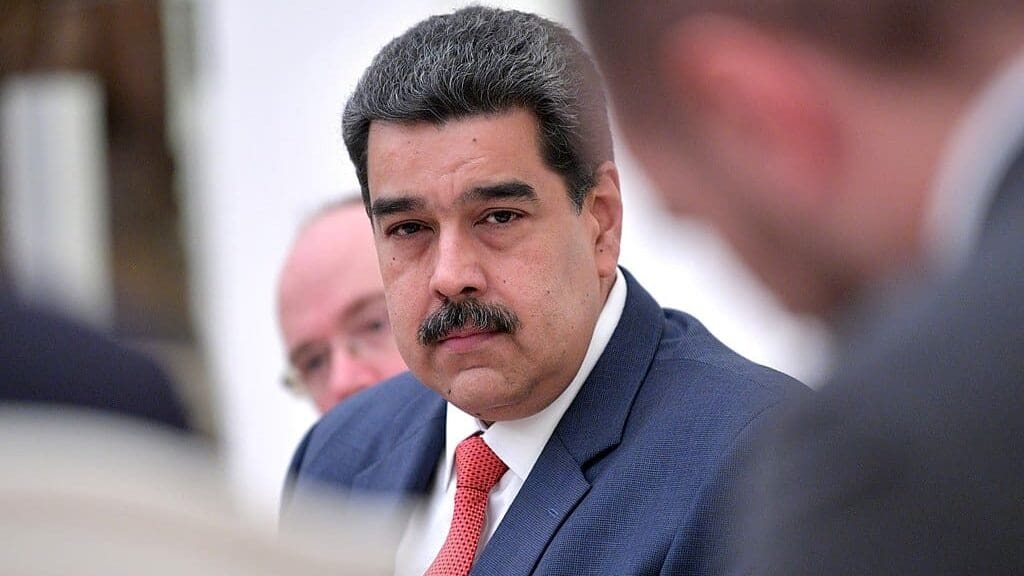
Nicolás Maduro
Photo: Kremlin.ru, CC BY 4.0, via Wikimedia Commons
As Venezuela prepares for elections on Sunday, July 28th, President Nicolás Maduro is doing everything he can to impede the opposition while presenting the appearance of clean elections to the international community.
These are Venezuela’s first elections in eleven years and are being closely watched internationally.
Observers estimate that Maduro is facing his toughest opposition yet, with a population tired of his narco-mafia banana republic and its accompanying poverty and insecurity that has become especially bad in the last seven of the 25 years of left-wing Chavist ideological rule.
In addition to an increasingly weary population, Maduro will have to contend with a stronger, more united political opposition than ever and increasing international pressure. The country’s three main opposition leaders have united under a banner they call the Democratic Unitary Platform (PUD). The presidential candidate for the group is former diplomat Edmundo González Urrutia, supported by María Corina Machado and Corina Yoris, who were each successively disqualified for the candidacy by the Maduro regime. Machado was key in forcing Maduro to call elections.
The PUD is polling ahead of Maduro and the party ended its campaign on July 25th with a well-attended rally in Maracaibo, Venezuela’s second city. Still, Maduro has largely relied on old tactics that have helped ensure his electoral victory in the past—banning viable opposition candidates from the ballot and making arrests of opposition leaders shortly before elections, plus the usual blackouts of unfavorable media.
In secret meetings in Qatar between Maduro’s right-hand man, Jorge Rodríguez, and Biden advisor Juan González, González pushed for free elections in 2024 as a condition for lifting the economic sanctions the Biden administration had imposed on Venezuela. Maduro may have seen that he had little choice but to allow Urrutia of the PUD to move forward to give the impression of free elections.
Maduro has also called in a select group of election observers. First, Rodrigo Londoño, a member of the FARC (Revolutionary Armed Forces of Colombia) known in the group as “Timochenko.” Londoño is now a deputy in the Colombian government run by Gustavo Petro, a former guerrilla fighter of the urban group M19, active in the 1980s. He also invited the former president of Colombia Ernest Samper, the Panamanian Omar Torrijos, and the Dominican Leonel Fernandez, who are all ideologically aligned with Maduro. The Carter Center, founded by former U.S. president Jimmy Carter, has also been invited.
He did not invite either the EU or Spain to observe the elections in a formal capacity. However, he did invite former Spanish Prime Minister Jose Luis Zapatero to observe. Zapatero is a socialist who has made relations with Venezuela and whitewashing Maduro’s regime something of a second career. Zapatero is also close to Spain’s current socialist prime minister Pedro Sánchez. Spain made its largest purchase of Venezuelan oil in twenty years just days ago and Sánchez’ former transportation minister Jose Albaros is embroiled in a scandal that includes a clandestine visit with Maduro’s minister Delcy Rodriguéz, who is banned from entering the EU as part of the bloc’s sanctions against Maduro’s regime.
At the same time, Spain is filled with opposition to Maduro. Millions of Venezuelans have fled the country over the years of his rule and Spain has been the destination of choice for a large number of them. In fact, Venezuelans have been the largest immigrant group to Spain in recent years. Venezuelans abroad can vote but they must do so at an embassy and present both their residency card in the country and a valid Venezuelan ID card.
Maduro’s government also called the Venezuelan diplomatic core to a meeting in which the diplomats were warned to be prepared to “punish the opposition with 100 years [of prison] if they ignore the result of 28J.”
The PUD is already warning of irregularities. Maduro’s government has not given the party credentials for its own observers of the elections, who should be allowed to watch the entire election process, starting with the installation of ballots at polling places on Friday, July 26.
If Maduro goes, it will not be quietly.
